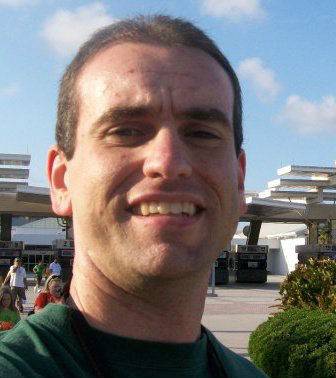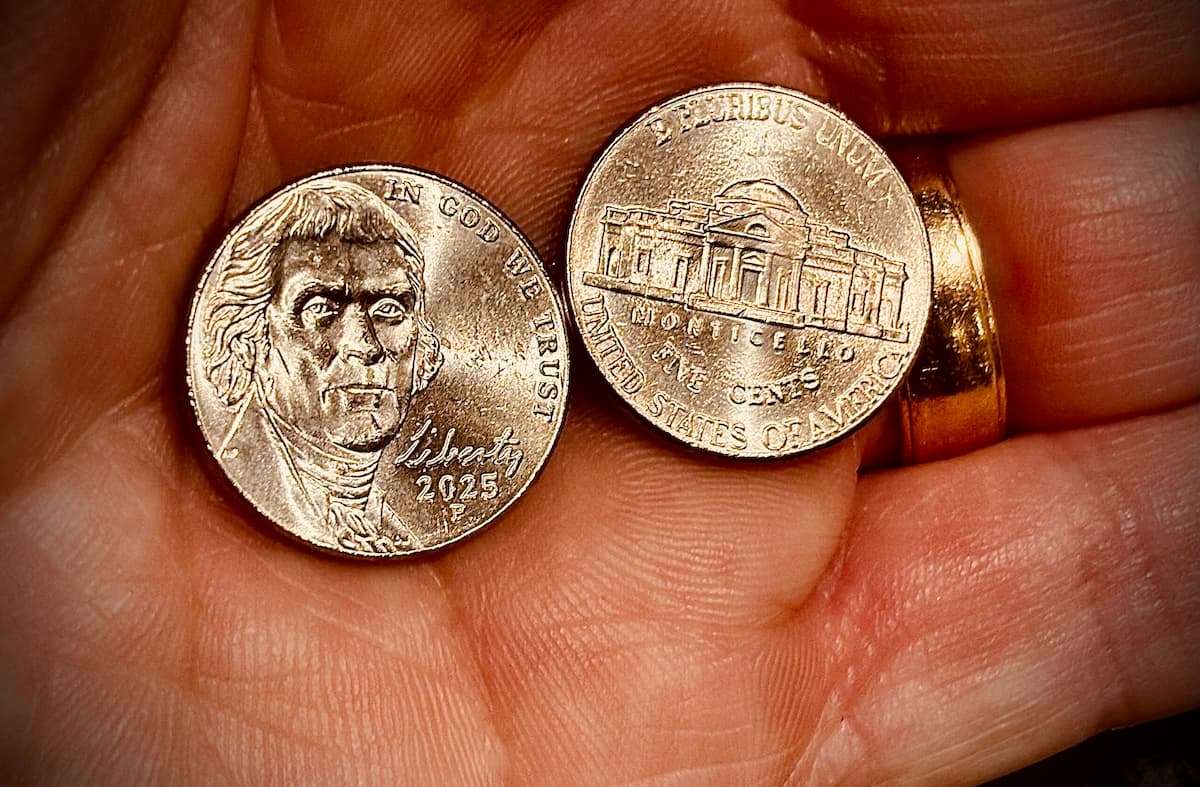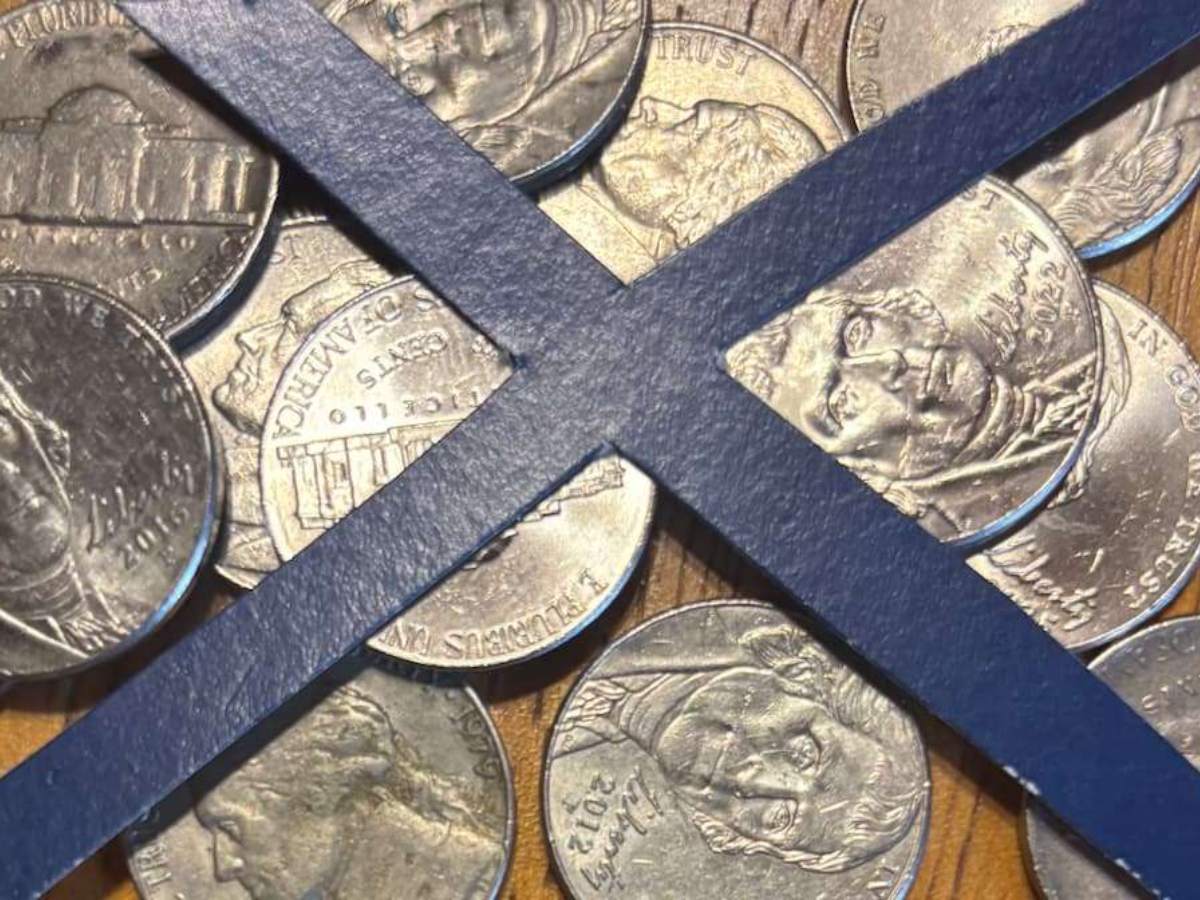Can you believe that some 1972 quarters are worth thousands of dollars more than their face value?
If you know what to look for, you could find a rare and valuable 1972 Washington quarter that’s worth a lot of money in your spare change!
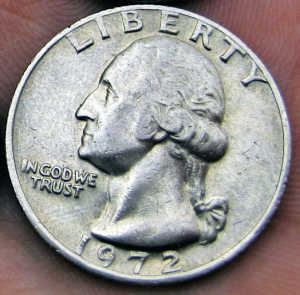
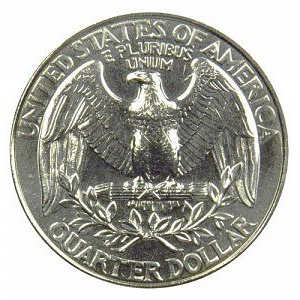
In this article, I’m going to explain why some 1972 quarter values are so high and help you figure out if you may already have one of these old rare coins in your possession.
Follow along as I reveal:
- How to tell the difference between a rare 1972 quarter that’s quite valuable and a common 1972 quarter that is worth only face value
- How much all 1972 Washington quarters are worth today
- A list of 1972 quarter errors that you could actually find in your spare change these days
First, some interesting facts about this coin…
Fun Facts About The 1972 Quarter
A 1972 quarter shows the likeness of the first United States President George Washington on the obverse (“heads side”) and a heraldic eagle on the reverse (“tails side”).
The original Washington quarter design was created by John Flanagan, whose pairing of Washington’s portrait and heraldic eagle were seen on the denomination virtually unchanged from 1932 through 1998. The only exceptions are the 1776-1976 dual dating and Jack L. Ahr’s colonial drummer boy motif on the Bicentennial quarters of the mid-1970s.
Another change seen with the Washington quarter during the mid-20th century was the removal of silver from the coin — which took place in 1965 to help save on coin production costs, at a time when the precious metal was rapidly climbing in value. By 1972, all circulating U.S. quarters were struck in copper-nickel clad and no longer made of 90% silver, as had been the case for decades.
More than a half billion 1972 quarters were struck, and there are no silver quarter errors known to exist among these. However, collectors can look for other things that make some of these old quarters rare and valuable, including a range of interesting errors and varieties — discussed below.
All 1972 quarters were made of a copper-nickel clad composition, and they should weigh 5.67 grams.
Do you have a coin scale? Here are the best scales for weighing U.S. coins.
How Much Is A 1972 Quarter Worth Today?
There were three different Washington quarters issued in 1972, and the values for each are listed below.
Each 1972 quarter has a unique:
- Mintmark (or mint letter stamp) — it appears on the front of the coin, to the right of Washington’s hair tie
- Mintage (or total number made) — the official production figures released by the U.S. Mint
Those are two of the most important details used when determining the value of a 1972 quarter — in addition to the condition of the coin, of course.
Okay, let’s see how much your 1972 quarter is worth…
1972 Quarter Value (No Mintmark)
The 1972 quarter with no mintmark was struck at the Philadelphia Mint. Quarters struck at the Philly Mint in 1972 are not supposed to carry a mint mark. Therefore, a 1972 quarter without a mint mark is not an error coin, but rather a normal coin as it was originally intended to appear.
In 1972, 215,048,000 quarters were made at the Philadelphia Mint, and these coins are considered common.
- A typical 1972 no mintmark quarter found with circulation wear is worth its face value of 25 cents.
- If you happen to find a 1972 quarter without a mint mark that shows no signs of wear and appears to have just left the mint yesterday, it’s worth $1 to $5.
- The most valuable 1972 no-mintmark quarter was graded MS-67+ by Professional Coin Grading Service and sold for $1,320 in a 2018 auction.
1972-D Quarter Value (“D” Mintmark)
The 1972 quarter with a “D” mintmark was struck at the Denver Mint. (The mint mark letter appears on the front of the coin — to the right of Washington’s hair tie.)
A total of 311,067,732 were made, and they remain relatively common coins today.
- A 1972-D quarter found in circulation is usually worth 25 cents.
- Uncirculated 1972-D quarters are worth substantially more — usually taking $1 to $5 without wear.
- The most valuable 1972-D quarter was certified MS-68 by Professional Coin Grading Service and took $3,055 in a 2014 auction.
1972-S Quarter Value (“S” Mintmark)
The 1972 quarters from the San Francisco Mint are worth paying attention to!
These special coins bearing an “S” mintmark were made specifically for coin collectors. They were produced using highly polished blanks and were intentionally struck twice by specially prepared dies on high-tonnage presses to bring up even the most minute details on the coin.
The San Francisco Mint produced 3,260,996 examples of the 1972-S proof quarter for collectors, and these coins were sold in proof sets.
- The 1972-S quarter is worth $3 to $5 in typical grades, but those with truly pristine surfaces and cameo frosting on the design, lettering, and other raised details fetch much more.
- The most valuable 1972-S quarter sold to date had evidence of being double struck and earned $1,380 in a 2007 auction.
IMPORTANT: What Is The Grade Of Your 1972 Quarter?
To determine the true value of your 1972 quarter, you first need to know what condition (or grade) your coin is in.
Grab a coin magnifier and a copy of the U.S. Coin Grading Standards book. Then, watch this video to see how to grade coins yourself at home:
These coin grading apps make grading coins yourself much easier.
Rare 1972 Quarter Errors You Can Find In Pocket Change
That 1972-S quarter error proof worth more than $1,300 (mentioned above) is fascinating, but there’s little chance of finding valuable proof coins with errors like that floating around in your pocket change.
Thankfully, there are many other 1972 quarter errors and varieties that are worth hundreds and thousands of dollars that you can find searching through coins in circulation!
Here are the ones that are easiest to find:
1972 Doubled Die Quarter Error
The 1972 double die quarter (more correctly known as the 1972 doubled die quarter) is worth looking for, but you’ve got to know which details to watch for with this kind of error.
A doubled die coin is a valuable variety struck by dies that inadvertently received two impressions of the same master design at differing angles or positions. This resulted in doubling of some aspects of the coin’s design.
Most coins that appear to be doubled dies to some collectors actually aren’t. Most coins with doubling in the design exhibit a form of damage to the die or they slid a bit on the press while being struck, resulting in a kind of smearing of the design that can mimic doubling. These are generally not worth anything extra.
A bona fide 1972 doubled die quarter will likely show obscure doubling in either the inscriptions (such as “IN GOD WE TRUST” or “E PLURIBUS UNUM”), in the eagle’s feathers, in Washington’s eye, or in some other isolated detail.
A 1972 doubled die quarter with minor doubling might bring $25 to $50 — perhaps more, depending on the magnitude of the doubling.
1972 Broadstrike / Smooth Edge Quarter Error
Find a quarter with no ridges or lines on its edge? It could be a valuable broadstrike error worth a lot of money. Or, it may be a damaged or heavily worn quarter worth only face value.
How would you know the difference?
A well-worn 1972 quarter with smooth edges will appear to be the typical thickness and diameter of a regular quarter. Whereas, a broadstrike will tend to be wider and thinner than a normal quarter.
A 1972 broadstrike quarter is usually worth $20 to $30.
1972 Off-Center Quarter Error
Some coins are erroneously struck off center. This is something that occurs when the coin isn’t squarely seated between the dies on the mint presses, leaving a portion of the design off the struck coin.
An off-center error normally has to be around 2% or 3% off at a minimum to have any value as a collectible error.
A 1972 quarter that is 5% or 10% off center could drum up a price of $20 or more, while a 1972 quarter that is about 50% off-center and still showing its complete date could take as much as $150 to $250… or even more!
READ NEXT: A List Of The Rarest U.S. Quarters
Do you have a 1972 quarter and think there may be something unique about it? Post a picture of your coin in the comments below and I’ll try to help!

